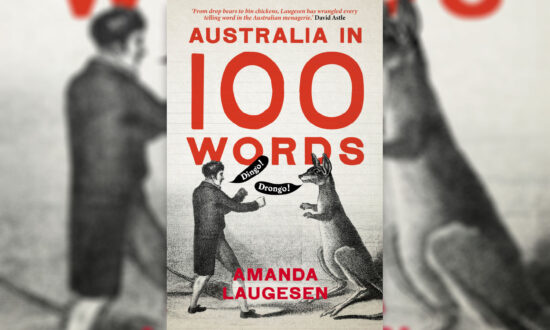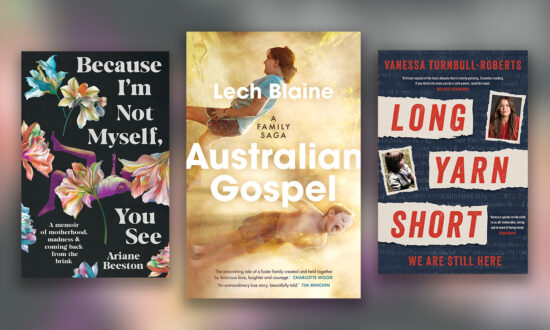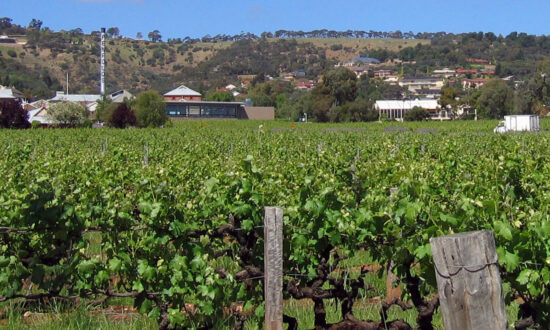A weekend ago, I cycled to work through a fog so thick it materialised in shining swathes on the sleeves of my winter coat. In the bookshop, we hunched over cardboard cups of coffee, greeting customers as they emerged from a Hindley Street hung with gauze.
Browsers fresh from their Saturday sleep-ins, with all the time in the world. Weekend partygoers dashing in to pick up birthday presents. Old friends, refreshing their bookshelves and remembering bygone days. A brave soul who dared to mention she’d never managed to watch all of Twin Peaks, then suffered my tips on the ideal sequence to watch it in.
And regular customers in their afternoon ballet finery – tailored suits and rich velvet – enthusing over the counter about the performers, spreading out the printed program for us to inspect.
All of them – all of us – out in the world. Moving forward, we thought (if we thought about it), after the winter of 2020.
Today, the bookshop – all Adelaide’s bookshops – are closed to the public. I would make a joke here about how books are actually essential, if the situation was less serious. Instead, I’ll share some of the intriguing and excellent new releases you can pick up from your favourite bookshop… on the other side of things.
 The Shut Ins, by Katherine Brabon (Allen & Unwin), is an isolation novel with a twist: it explores the world of hikikomori, a (rare) Japanese social phenomenon where young people withdraw from all social contact, not leaving their houses (or sometimes just their bedrooms) for months, or even years, at a time.
The Shut Ins, by Katherine Brabon (Allen & Unwin), is an isolation novel with a twist: it explores the world of hikikomori, a (rare) Japanese social phenomenon where young people withdraw from all social contact, not leaving their houses (or sometimes just their bedrooms) for months, or even years, at a time.
In this novel, set in Japan, Brabon, a previous Vogel winner, tells four connected stories. Mai went to school with hikikomori Hikaru; 10 years later, his mother hires her as a “rental sister”, to write him letters to coax him from his bedroom. Her conservative new husband, J, regularly visits a hostess in a Tokyo bar, seeing in her the perfect wife he desires. We also get the stories of Hiromi, Hikaru’s mother, shamed by his social failure, and Hiromi himself, who takes us inside his craving for the safety of his room, and explains why he doesn’t feel like the popular representations of hikikomori represent his life.
Endorsed by Hannah Kent and Emily Bitto, this spare, elegant novel is inspired by the author’s real-life encounters in Japan and her fascination with achiragawa, “a place of dreams, death and possibility”.
 If you prefer to escape from reality than engage with it, Baltimore crime queen Laura Lippman’s new novel, Dream Girl (Faber), has been compared to Stephen King’s toxic fandom masterpiece Misery (King is a fan of Lippman, as is Gillian Flynn). Writer Gerry Andersen has never topped his bestselling novel Dream Girl, and he’s been blocked for quite a while. In Baltimore after caring for his mother in her last days, he has a debilitating fall, and is being cared for by two women: his night nurse and his personal assistant. Meanwhile, he’s being harangued by phone calls from a woman claiming to be the original Dream Girl. But there’s no such person… and to find his harasser, he must figure out the line being blurred between fact and fiction.
If you prefer to escape from reality than engage with it, Baltimore crime queen Laura Lippman’s new novel, Dream Girl (Faber), has been compared to Stephen King’s toxic fandom masterpiece Misery (King is a fan of Lippman, as is Gillian Flynn). Writer Gerry Andersen has never topped his bestselling novel Dream Girl, and he’s been blocked for quite a while. In Baltimore after caring for his mother in her last days, he has a debilitating fall, and is being cared for by two women: his night nurse and his personal assistant. Meanwhile, he’s being harangued by phone calls from a woman claiming to be the original Dream Girl. But there’s no such person… and to find his harasser, he must figure out the line being blurred between fact and fiction.
Lippman, who was a journalist before she was a crime novelist, has just published a book of personal essays (her first), too, brilliantly titled My Life as a Villainess (Faber) and presented as a beautiful little hardback. In it, she shifts focus from the flawed, complicated women she writes about in her novels to one in particular: herself.
Her voice is wry, tough and vulnerable, as she explores learning to love her ageing, technically imperfect body (after many years of punishing it), being mistaken for her daughter’s grandmother, growing up in Waco, Texas, crime writing, a friendship with Anthony Bourdain, and a great essay I will best explain by telling you her husband is David Simon and that it’s titled, “Men Explain The Wire to Me”. If you’re a fan of Lippman’s fiction – or of the personal essay form – it’s well worth a look.
 Pop-culture critic and screenwriter Clem Bastow’s Late Bloomer: How An Autism Diagnosis Saved My Life (Hardie Grant) is a book I’ve been waiting to read since I first heard about it – and one that has potential to transform general understanding about how autism presents in women and gender-diverse people.
Pop-culture critic and screenwriter Clem Bastow’s Late Bloomer: How An Autism Diagnosis Saved My Life (Hardie Grant) is a book I’ve been waiting to read since I first heard about it – and one that has potential to transform general understanding about how autism presents in women and gender-diverse people.
In this candid, witty, generously vulnerable memoir, Bastow opens up about her diagnosis with autism at the age of 36, and looks back on her life’s great challenges and achievements to understand how it has shaped her. From her childhood obsession with dinosaurs to channelling her passion for music into a self-taught career as a music critic (modelling herself on Lester Bangs after watching Almost Famous), and then her movie obsession into being a screenwriter, then screen lecturer, she is wonderful – and inspiring – on writing her autistic strengths. Equally importantly, she shares her lifelong difficulty adapting to social environments, from school to workplaces, in visceral detail that takes the reader behind the “mask” many autistic women learn to wear.
Memoirs by autistic women are rare – and those by Australian women, even more so. And this is the first memoir I’ve found written by an autistic woman whose special interests are pop-culture-related. So this is a precious resource simply because it exists. But because Bastow is a writer first and foremost, this is also a very, very good read (as Christos Tsiolkas, Clem’s long-time Triple R co-host, confirms on the cover), and I highly recommend it to anyone with even a glancing interest in this subject.
 Amani Haydar’s memoir The Mother Wound (Macmillan) is another vitally important contribution to Australian literature; she fills a gap by writing about the experience of domestic violence from a Muslim woman’s perspective. Haydar’s story is heartbreakingly unique: when she was pregnant with her first child, her mother was murdered by her father in front of one of her sisters, who was injured trying to defend her mother.
Amani Haydar’s memoir The Mother Wound (Macmillan) is another vitally important contribution to Australian literature; she fills a gap by writing about the experience of domestic violence from a Muslim woman’s perspective. Haydar’s story is heartbreakingly unique: when she was pregnant with her first child, her mother was murdered by her father in front of one of her sisters, who was injured trying to defend her mother.
Her mother had long complained about her father’s emotional abuse, but he had never been physically abusive. Haydar had always seen her parents’ arranged marriage (her mother was 17 at the time) as a bad match, and while she empathised with her mother’s unhappiness, she had never considered her a victim of domestic violence, or in any danger. In retrospect, she pieces together the evidence she lacked the knowledge to see as danger signs.
This story is situated in the context of two other key events – Haydar’s father’s murder trial, in which he is supported by his family (who harass Haydar and her sisters for making statements against him), and her beloved grandmother’s death in Lebanon, while fleeing an Israeli civilian strike. Both events made international headlines; she and her family learned about her grandmother’s death while watching TV.
One other vital thread throughout – from the first sentence of the first chapter – is Haydar’s loving, supportive marriage to her own husband, Moey, a Lebanese Muslim man she met and fell in love with at uni. His steadfast love, empathy and unquestioning prioritising of her needs through her mother’s death and her father’s trial are a deliberate counterpoint to the toxic masculinity of her father (whose ego was “fragile against failure or insubordination”), her brother, and her paternal family. “I know that a better kind of masculinity exists because my partner has filled the empty shoes left by multiple men in my life without hesitation.”
Haydar, a lawyer and Archibald prize-winning artist, writes incisively and intelligently about her experience of losing her mother and grandmother to (respectively) domestic and state violence, blending her personal experience with insights she’s accumulated from research, reading, therapy and working with other survivors. The result is a compelling read.
I’ve just read the group text confirming that, of course, Imprints is shut for the next seven days. “Stay safe, say sane, and read if you can.”
Good advice for all of us, I think.
Jo Case is a bookseller at Imprints Booksellers on Hindley Street and an associate publisher at Wakefield Press.
Support local arts journalism
Your support will help us continue the important work of InReview in publishing free professional journalism that celebrates, interrogates and amplifies arts and culture in South Australia.
Donate Here




